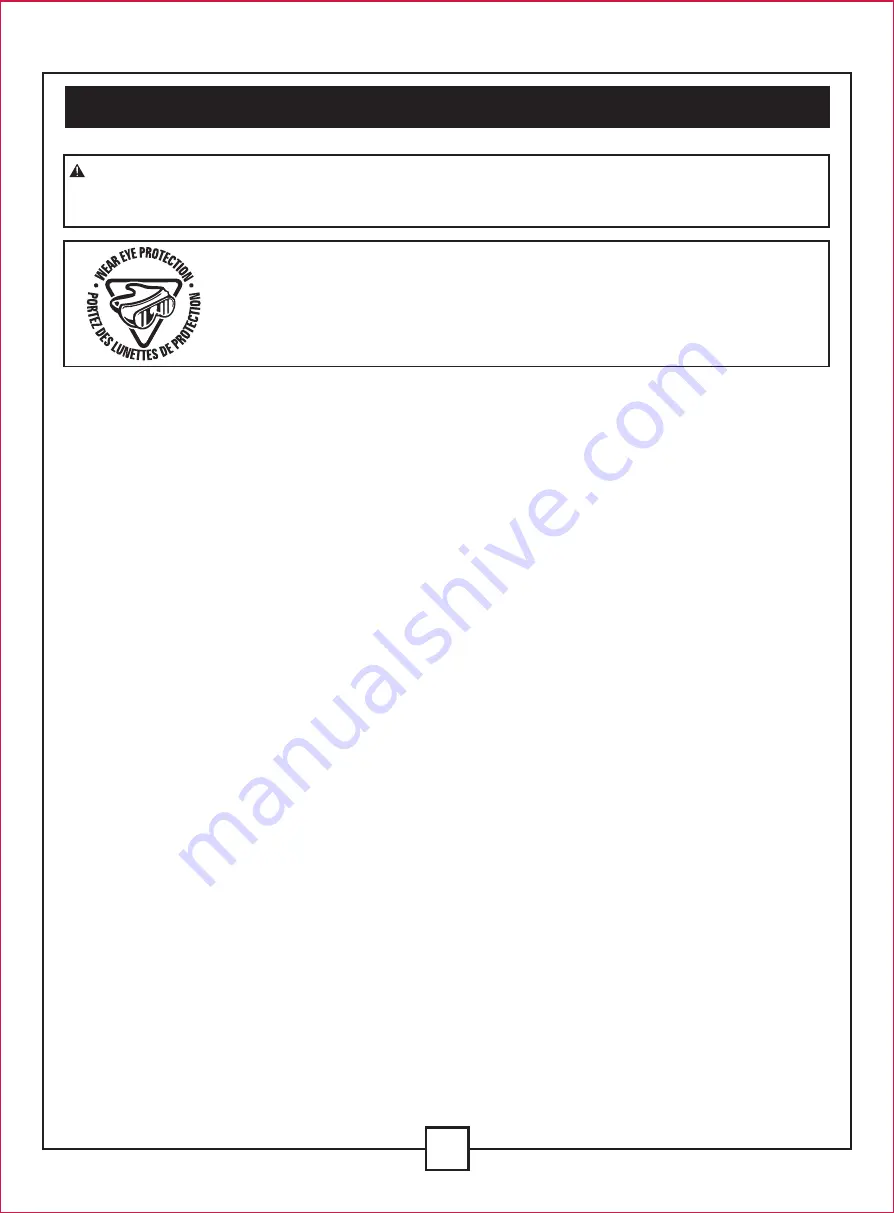
17. Attach the dust extraction unit. If there are connections for dust extraction and collection
equipment, then make sure that the equipment is correctly attached and used.
18. Never use the cable for purposes for which it is not intended. Do not use the cable to pull the
plug out of the power socket. Protect the cable from heat, oil and sharp edges.
19. Secure the workpiece. When necessary use clamping devices to secure the workpiece. The
workpiece is thereby secured better than by hand.
20. Avoid taking abnormal stances. Make sure you stand securely and keep your balance at all
times.
21. Look after your tool with care. Keep the cutting tool sharp and clean so that you are able to
work better and more safely with it. Observe the guidelines on lubrication and exchanging tools.
Check the power cable of the electric power tool regularly and in case of damage let a recognized
specialist repair it. Check extension cords regularly and replace them if they are damaged.
Keep the handles dry, clean and free of oil and grease.
22. Pull the plug out of the power socket when the electric power tool is not in use, before
maintenance and when exchanging tools such as saw blades, drills and mills.
23. Do not leave keys in the device. Before you switch the device off, check that keys and setting
tools have been removed.
24. Avoid starting-up the device accidentally. Make sure that when you insert the plug into
the power socket, the power switch is turned off.
25. Use an extension cord when working outdoors. Only use extension cords outdoors which are
authorized for outdoor use and are correspondingly marked.
26. Be attentive. Be carefully what you do. Carry out your work sensibly.
27. Check the electric power tool for any sign of damage. Before continuing work with the electric power
tool, safety devices or easily damaged parts have to be carefully checked to ensure that they
function properly and are not defective. Check that moving parts are working properly and are
not or damaged. All parts must be correctly assembled by an experienced individual, unless
stated otherwise in the operating instructions, and meet all required conditions in order
II. General safety guidelines (continued)
4
KEEP THIS USER’S MANUAL IN A SAFE PLACE FOR FUTURE REFERENCE
ALWAYS WEAR EYE PROTECTION THAT CONFORMS WITH CSA
REQUIREMENTS.
FLYING DEBRIS can cause permanent eye damage.
Prescription eyeglasses are not a replacement for proper eye protection.
WARNING!
EXPOSURE TO EXCESSIVE NOISE LEVELS CAN RESULT IN PERMANENT
HEARING LOSS. ALWAYS WEAR EAR PROTECTION (SAFETY EAR MUFFS OR EAR
PLUGS) TO REDUCE NOISE LEVELS WHEN OPERATING THE TABLE SAW.





































